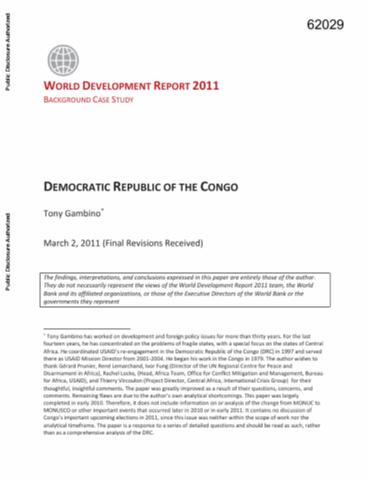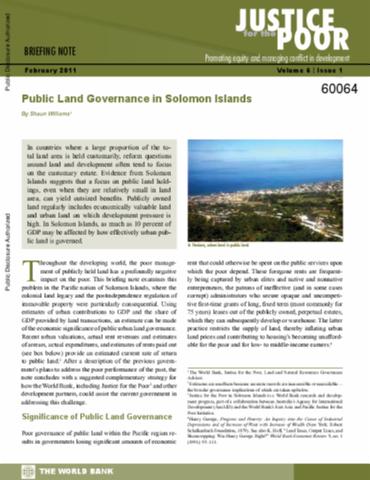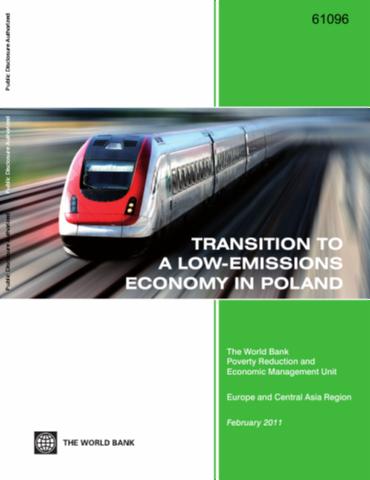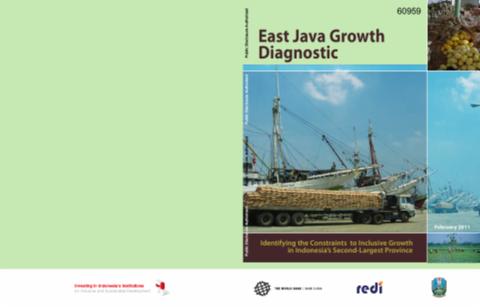The World Bank is a vital source of financial and technical assistance to developing countries around the world. We are not a bank in the ordinary sense but a unique partnership to reduce poverty and support development. The World Bank Group has two ambitious goals: End extreme poverty within a generation and boost shared prosperity.
- To end extreme poverty, the Bank's goal is to decrease the percentage of people living on less than $1.25 a day to no more than 3% by 2030.
- To promote shared prosperity, the goal is to promote income growth of the bottom 40% of the population in each country.
The World Bank Group comprises five institutions managed by their member countries.
The World Bank Group and Land: Working to protect the rights of existing land users and to help secure benefits for smallholder farmers
The World Bank (IBRD and IDA) interacts primarily with governments to increase agricultural productivity, strengthen land tenure policies and improve land governance. More than 90% of the World Bank’s agriculture portfolio focuses on the productivity and access to markets by small holder farmers. Ten percent of our projects focus on the governance of land tenure.
Similarly, investments by the International Finance Corporation (IFC), the World Bank Group’s private sector arm, including those in larger scale enterprises, overwhelmingly support smallholder farmers through improved access to finance, inputs and markets, and as direct suppliers. IFC invests in environmentally and socially sustainable private enterprises in all parts of the value chain (inputs such as irrigation and fertilizers, primary production, processing, transport and storage, traders, and risk management facilities including weather/crop insurance, warehouse financing, etc
For more information, visit the World Bank Group and land and food security (https://www.worldbank.org/en/topic/agriculture/brief/land-and-food-security1
Resources
Displaying 4611 - 4615 of 4906Democratic Republic of the Congo
The Democratic Republic of the Congo (DRC) has been described by one senior African diplomat at the United Nations as a 'state in the making; it is not yet a state.' Further, this 'state in the making' also is a state that, with few exceptions, has been in decline since the early 1970s. The colonial era, from 1885 until 1958, was a period of nearly uninterrupted state construction; the hegemony of the Belgian colonial apparatus steadily deepened.
Involuntary Resettlement in Brazil: A Review of Policies and Practices
1. As Brazil embarks on a period of intensive infrastructure development—fueled by the upcoming World Cup, Olympics, and the government‘s ongoing Growth Acceleration Plan—it is an opportune time to review its experiences with land acquisition and displacement of affected persons, and to assess the extent to which its resettlement practices match up to international standards.
Public Land Governance in Solomon Islands
In countries where a large proportion of the total land area is held customarily, reform questions around land and development often tend to focus on the customary estate. Evidence from Solomon Islands suggests that a focus on public land holdings, even when they are relatively small in land area, can yield outsized benefits. Publicly owned land regularly includes economically valuable land and urban land on which development pressure is high. In Solomon Islands, as much as 10 percent of Gross Domestic Product (GDP) may be affected by how effectively urban public land is governed.
Transition to a Low-Emissions Economy in Poland
Against the backdrop of agreement that global coordinated action is needed to prevent dangerous climate change, individual countries are thinking through the implications of climate action for their economies and people. The rest of the report is organized along the following lines. The next section provides background on Poland's greenhouse gas (GHG) emissions. Then section B sets out Poland's existing carbon abatement targets and key policy challenges related to GHG mitigation. The next section summarizes the innovative methodological approach used by the report.
East Java Growth Diagnostic
East Java is the second largest contributor to Indonesia's economy with a growth rate similar to national level and other major provinces in Java. Nevertheless, for a province that is expected to be a major economic center in the country, there has been very little change in the region's economic structure in the past 10 years. Since 1995, the share of industry and agriculture in the economy is almost unchanged. Furthermore, the growth in both of these two sectors has been low, despite the fact that industry was once the main driver of the East Java economy.










